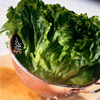Caffeine Helps Exercise Related Asthma

Ingesting caffeine within an hour of exercise can reduce the symptoms of exercise-induced asthma, U.S. researchers said.
Co-investigator Timothy Mickleborough of Indiana University in
Bloomington and colleagues said the caffeine study involved 10 subjects
with exercise-induced asthma in a randomized, double-blind,
double-dummy, crossover study.
The subjects ingested 3, 6 or 9 milligrams of caffeine per kilogram of
body weight or a placebo an hour before running on a treadmill.
Pulmonary function tests were conducted 15 minutes before a eucapnic
voluntary hyperpnea challenge -- a surrogate for an exercise challenge
-- and then again one, five, 10, 15 and 30 minutes afterward.
The researchers found 9 milligrams of caffeine per kilogram of body
weight was as effective as the use of an albuterol inhaler to treat or
prevent exercise-induced asthma. The smaller amounts of caffeine of
caffeine per kilogram of body weight also reduced the wheezing, coughing
and other symptoms of exercise-induced asthma.
For someone weighing 150 pounds, 3 to 9 milligrams of caffeine per
kilogram of body weight equals around 205 to 610 milligrams of caffeine,
Mickleborough said.
The findings were presented at the American College of Sports Medicine conference in Seattle.
Produce Rich Diet Lowers Blood Pressure
 Drs. Kay Judge and Maxine Barish-Wreden McClatchy Newspapers
Drs. Kay Judge and Maxine Barish-Wreden McClatchy Newspapers
If you're like many Americans, your blood pressure has crept up
as you've gotten older. But it doesn't have to. Our lifestyle has an
impact on blood pressure; in fact, in parts of the world where people
still live as their ancestors did, high blood pressure is rare. Things
that contribute to a healthy blood pressure include a diet high in
fruits and vegetables.
It's not clear how fruits and veggies exert their effect, though it
likely has something to do with vitamin and mineral content. A study
from the National Heart, Lung and Blood Institute sheds light on this,
suggesting that higher vitamin C levels are linked to healthy blood
pressure. In the Growth and Health Study, 242 girls ages 8-11 were
followed for 10 years, and their blood pressure and vitamin C blood
levels were measured regularly. More research is needed.
In the meantime, multiple things will help keep your blood pressure
normal as you age, and also protect your heart. Here are some lifestyle
tips:
Eat lots of fruits and veggies every day, especially those high in
potassium and vitamin C, such as citrus; dark green, leafy veggies; and
melons.
Keep up that fiber intake. Aim for at least 50 grams per day. Some
studies suggest that fiber such as psyllium and wheat bran can help
lower blood pressure. It's estimated that prehistoric folks got about
100 grams of fiber per day in their diet; the average American now gets
about 10.
Eat calcium-rich food every day. Calcium also seems to help regulate
blood pressure. Or take a calcium supplement twice daily with food.
Take a vitamin D supplement daily. Population studies suggest that
people with low vitamin D blood levels are at higher risk of developing
hypertension as well as obesity and diabetes.
Fish oil may help to reduce blood pressure, so try to eat high-fat fish
at least twice per week or take a fish oil supplement daily.
Saturday, April 20, 2013
Caffeine Helps Exercise Related Asthma
2:48 AM
No comments








0 comments:
Post a Comment